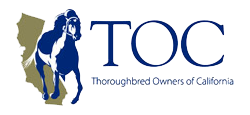By Robert R. Hill, CPA
With the economy booming and the horse business healthy (just look at the recent record-setting Keeneland sales), there will undoubtedly be a lot of last-minute tax-planning by horse owners.
Unfortunately, last-minute tax planning is marginal at best, and quite often ineffectual. The better alternative is to do your tax planning as your fiscal year unfolds. With this in mind, here are a couple of tax saving tips:
“Deferred Exchange Agreement” Can Avoid Capital Gains Tax
A “Deferred Exchange Agreement” can be used in the sale of horses to avoid taxes on capital gains, as long as the horse sold is replaced by another horse or horses (up to four) of the same sex. This is a great idea when someone makes you “an offer you can’t refuse,” just accept the offer by entering into a deferred exchange agreement, which defers gains recognized on the sold horse. The timing of this agreement is a bit complex, and Uncle Sam’s regulations leave no room for error, so proceed with this agreement only with the help of a competent tax advisor or attorney, and an independent “qualified intermediary.” The “intermediary” holds the sale proceeds until a replacement horse has been found, and then remits the monies from the sale of the old horse to pay for part or all of the replacement horse(s).
The Internal Revenue Service requires that you “identify” your potential replacement horse(s) within 45 days of selling your horse, and close on the replacement horse within six months. Note that the “qualified intermediary” that holds your sale proceeds really has to be independent – it cannot be a relative, your attorney, your accountant, or your real estate agent.
The criteria for this transaction are very strict and should be followed explicitly. For example, let’s say someone offers you $100,000 for a racemare that you bred and raised*. You accept the offer by entering into a deferred exchange agreement with the buyer and the qualified intermediary. The intermediary holds your $100,000. Within 45 days of the sale you find and “identify” up to four potential replacement fillies and/or mares.
Within six months after the sale you actually take title to one or more of the animals by spending at least the entire intermediary’s $100,000. By properly completing this transaction, you have deferred the $100,000 gain on the sale of the original racemare. Accordingly, the above also works with stallions, stallion shares, showhorses, and breeding stock, but not horses held for resale.
First Year Tax Expensing
For those of you who procrastinate and only worry about your income tax situation after the end of the year, I can think of only one tax saving idea: First-year expensing. For 1999, IRC Section 179 allows taxpayers engaged in a trade or business to expense $19,000 of personal property, which would otherwise be depreciable.
Unfortunately, many tax practitioners are not cognizant of the fact that this first year expensing election also applies to horses. So, if you purchased some horses during the year, you may be able to use the first-year expensing election to reduce your income tax liability for the year. Remember that reduced income taxes require due diligence and planning, and that Uncle Sam is your partner, like it or not! Therefore, think about the ramifications of having such a partner, and plan your tax strategies accordingly.
*Depreciation and capital gains issues become more complex for horses that are purchased (as opposed to ones that are bred and raised) and then resold. To make sure your accounting is correct, consult with an accountant who is familiar with the horse business.
Robert R. Hill serves as the Director of Taxation at Crowe, Chizek, and Company LLP in Louisville, Kentucky. He has much experience in equine tax and accounting matters.
Reprinted with permission of the American Horse Council’s Tax Bulletin.
